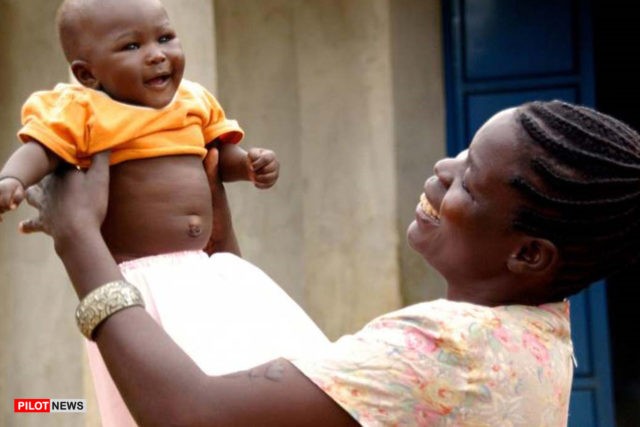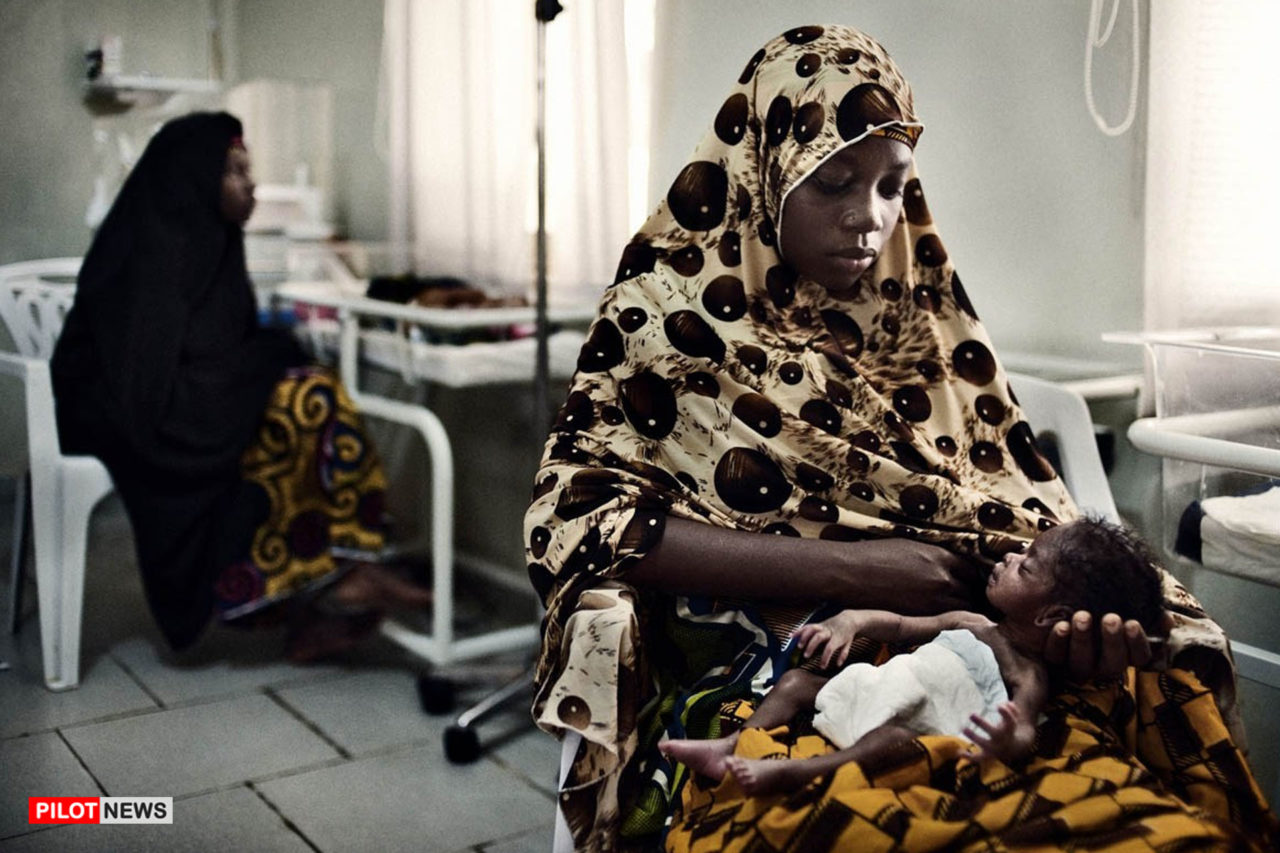
Death of women of reproductive age remains a huge concern globally. In 2017, Sub-Saharan Africa and Southern Asia accounted for approximately 86% (254,000) of the estimated global maternal deaths. Between 2000-2017, Southern Asia achieved the greatest overall percentage reduction of 59% while Sub-Saharan Africa achieved a substantial reduction of 39 percent of maternal mortality. Despite these reductions, according to UNICEF in 2019, the ratio is still unacceptably high.
Despite interventions on maternal health by Government and partners, Nigeria still ranks the 4th highest country with high maternal death rate.
As at 2015 the Millennium Development Goal (MDG) achievement target year, the estimated maternal mortality ratio (MMR) in Nigeria was over 800 maternal deaths per 100,000 live births, with approximately 58000 maternal deaths that same year (WHO, 2019). This figure far exceeds the global MMR target of less than 70 maternal deaths per 100,000 live births by year 2030 as set by Sustainable Development Goals (SDG). For Nigeria to achieve this feat, focus should not only be on transforming the health sector, but some fundamental issues have to be effectively and efficiently tackled.
Despite interventions on maternal health by Government and partners, Nigeria still ranks the 4th highest country with high maternal death rate. No doubt, the Maternal, Newborn, and Child Health (MNCH) interventions implemented in Nigeria from 1990 to 2014 saw a downward trend of maternal mortality but the seriousness of the issue demands much more in order to ensure healthy lives of her citizens and promote wellbeing for all at all ages (SDG 3) by 2030. Therefore, tackling this menace demands a holistic approach; all aspects need to be taken care of including the factors posed by recipients of Maternal Healthcare.
As long as the mindset and belief of most women and families in Nigeria remains the same as regards childbirth, we may not have scratched the surface. Nigeria is a highly religious country and ‘to deliver like the Hebrew women’ is a common phrase heard amongst Christians which has been linked to the high maternal mortality index. The phrase ‘delivering like the Hebrew women’ however emanates from a biblical story in Exodus chapter 1 verse 18 to which most clergies give erroneous interpretation that children of God ought not to deliver through caesarean section (CS) but vaginal delivery. With this on their mind and zeal to exercise their faith, many women have not only met their untimely death but that of the child because they refused signing up for a CS as prescribed by a doctor.
There are cases of women who leave the hospital once CS is prescribed only to end up in the house of a Traditional Birth Attendant (TBA) and unqualified maternity homes. For this cause, there is need for vigorous enlightenment on the need for caesarean section in some situations and the dangers of delaying action. Most programs identify and center on women as their target audience but in this light, religious leaders are critical and should be enlightened as well so as to help in disseminating this information. These religious leaders have large and ardent congregations who would rather believe same message from them than from a medical practitioner, government or Non-Governmental officials.
Also, some religious faiths in Nigeria do not take recommended drugs or accept blood transfusion even in life threatening situations as in the case of a severely jaundiced 14-day-old baby in Lagos whose parents, Mr. and Mrs. Emmanuel Onokpise, denied her a blood transfusion on religious grounds (The Nation Newspaper, 2020). Invariably matters of faith in Nigeria pose serious threats to maternal and child health.

However, it is not only issue of faith and belief that stops women from accepting promptly to be delivered through caesarean section when the need arises, but availability of funds. While cost of vaginal delivery in Nigeria is about N20,000 ($55), CS is as high as N150,000 ($415) and it is expected of one to pay a substantial deposit before the procedure. This is a major drawback for many as these women are poor, unemployed and not covered by the National Health Insurance Scheme. Their family members especially their husbands, ab initio, would have drummed it into their ears the unavailability of funds and the need for her to reject a caesarean section and ‘try’ to deliver ‘normal’. They are so ignorant of the deadly implications of rejecting medical personnel’s prescription.
No doubt, training and retraining of skilled medical practitioners, building of health care facilities, introduction of Free Maternal and Child Health Care (FMCHC) and the likes are right steps in the right direction, but the aim is defeated if the recipients reject it. Hence, there is great need to creatively design programs and policies that will not only transform health system in Nigeria but the people as well.
While some base their decisions to try vaginal delivery against doctor’s warning on lack of funds, others keep ranting ignorantly that delivery through CS has never been recorded in their lineage and so they seriously kick against it. The poor woman writhing in childbirth associated pains and no cash to pay or will to go against her husband’s decision usually is at the mercy of her family members and so it is paramount that sensitization programs be specially designed for rural men as well because our society is patriarchal in nature. On this note, female empowerment cannot be overemphasized because with stable income, they may begin to accept registering with the National Health Insurance Scheme and avoid out of pocket payments of hospital bills.
No doubt, training and retraining of skilled medical practitioners, building of health care facilities, introduction of Free Maternal and Child Health Care (FMCHC) and the likes are right steps in the right direction, but the aim is defeated if the recipients reject it. Hence, there is great need to creatively design programs and policies that will not only transform health system in Nigeria but the people as well. Also, early enlightenment of the girl child on matters of health is crucial if we desire to surmount this menace.
- Anambra 2025 Governorship Election Might Be an Open Contest - April 24, 2024
- Anambra Assembly Passes Bill To Prohibit Secret Cults - April 24, 2024
- 2024 Aguata NBA Law Week: AG, Prof. Ifemeje Touts Landmarks and Expectations - April 19, 2024


